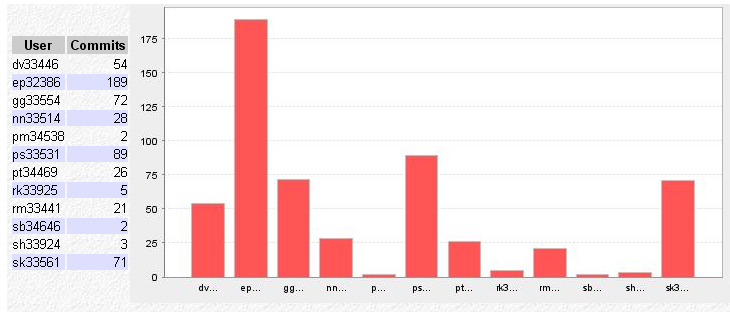 |
Have a look at our detailed developer guide and you will find that JTrac has one of the most developer-friendly set-ups among open-source projects. It will take you only a few minutes to be up and running no matter which Java IDE you use. We actively encourage contributions and with your support JTrac can become better than it is today.
Apart from using the forums you can also consider joining the JTrac mailing-list.
Note that this roadmap dates all the way back to the 2.1.0 days, and no longer reflects the priorities of the current development team. Much of this will likely not be implemented, whereas other features not mentioned here may see the light of the day. If you're missing something in particular (or found a bug), file a ticket in the appropriate ticket tracker, and we'll take it from there.
In a future version of JTrac, the ability to even hide fields depending on the role and status will be implemented. The design for this is already in place.
JTrac will support "nested" items under a first-level "parent" item and the design and database schema for this is already in place. This will allow users to split tasks into sub-tasks and opens up other possibilities. One of the plans in the roadmap is to build JTrac into a full-fledged requirements capture tool complete with test-case management and traceability. JTrac can then be used to manage user-stories or use-cases for agile development teams.
Using Beanshell, users should be able to introduce custom routines to validate item data entered by a user. Even conditional validation across fields should be possible.
Again using Beanshell, users should be able to define routines to execute periodically, say at a pre-determined time every day. This would allow triggers for events such as slippage of a "due-date" field. This can be combined with e-mail notifications. Also a daily dashboard summary could be mailed out once the scheduler is in place. [As of version 2.1.0 - the scheduler is already in place for those who are working on extending JTrac.]
JTrac should be able to monitor an e-mail account and incoming e-mail should trigger creation / updation of items. It would be handy to have attachments submitted through email also.
It should be possible for users to save search filters and re-use them. This has been partially implemented in 2.2.0 with the saved search/bookmark feature.
There is a plan to embed a wiki-engine into JTrac. This will supplement the requirements management road map. This has been partially implemented in 2.3.0.
Integration with Subversion has already been implemented using the JavaSVN library and this will enable effective integration of bug reports with commit history in the future. You can try out the existing experimental support by going to the following url of your JTrac installation: http://[hostname]/jtrac/app/svn

Experimental Subversion support: commits per user report
A one-to-many data model for being able to tag items "Web 2.0" style is already in place. This would be ideal to track things such as mapping bugs to software release version numbers, associating keywords with items and to do all kinds of other cool stuff.
RSS feeds will be introduced so that you can monitor new items and updates to items.
Import from other issue tracking systems (such as BugZilla) to be considered. Once complete, this feature will allow you to import raw data from a spreadsheet, apply any data cleanup needed, identify and load custom fields / drop down values and finally import the items, creating a new Space and users if required.
In the latest version of JTrac, it is possible to import items from an Excel sheet. See this YouTube video for a demo: https://www.youtube.com/watch?v=T6GxZn4gNYM
JTrac uses the Acegi Security framework which supports integration with a Central Authentication Service (CAS) installation. You can refer to the installation guide for how to configure JTrac to use CAS for single sign on. As of version 2.1.0 JTrac supports LDAP authentication out of the box. This needs to be improved by adding an admin screen that can browse and add users from an LDAP server. Authorization using LDAP and allowing users to plug in custom authentication and authorization routines would be good to have as well.
JTrac should be able to expose a remote XML API (SOAP or REST) so that core functionality can be invoked / integrated with other systems.
Mylyn (previously known as Mylar) integration in the form of a connector (Eclipse plugin) is currently being implemented. The remote API mentioned above is also being developed (REST).
The database schema already has support for capturing planned vs actual effort against items. This needs to be implemented and obviously will open up a lot of possibilities.
Although JTrac has an 'Excel Export' feature that should suffice for all your reporting and charting needs, it would be good to have a reporting engine that allows the user to create custom reports and even schedule reports to be sent out over e-mail.